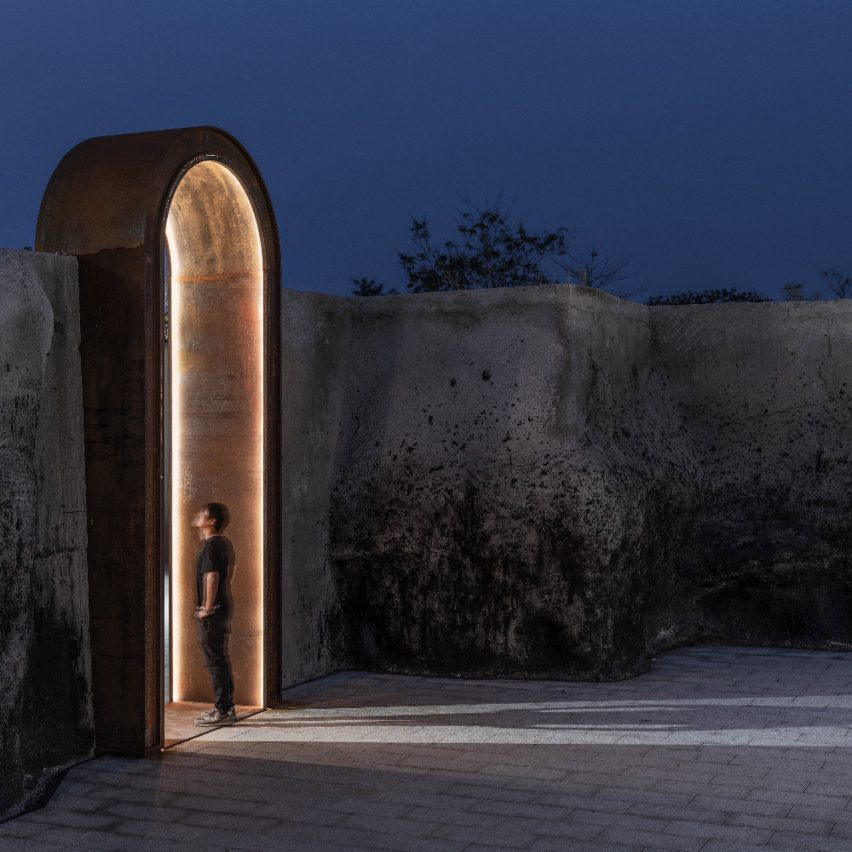
ECG International Landscape Consultants has transformed the site of a derelict sugar factory in Pingtung City, Taiwan, into a public park that retains fragments of the existing industrial infrastructure.
The Heito 1909 project covers an area of 160,000 square metres that had been inaccessible to the public since 1909 when it was developed into a factory for processing sugar cane.
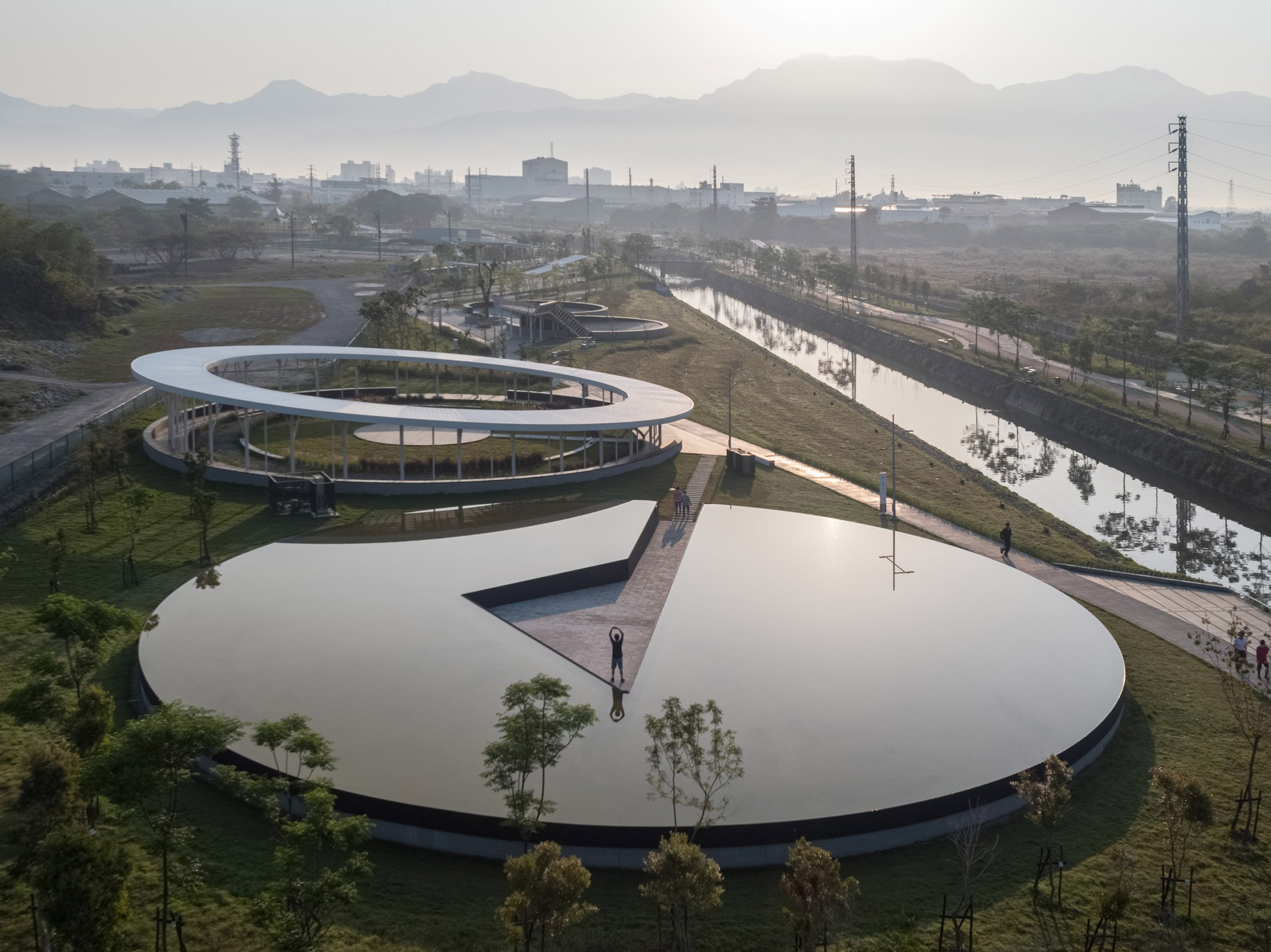
The project by ECG International Landscape Consultants transforms the site on both sides of Snake Creek into a public space that combines natural environments with the preservation of the factory's ruins.
The park is shortlisted in the landscape project category of Dezeen Awards 2021, alongside a tranquil garden designed for a property development in Danyang, China, and a playful park in Beijing featuring large pipes that contain walkways and bridges.
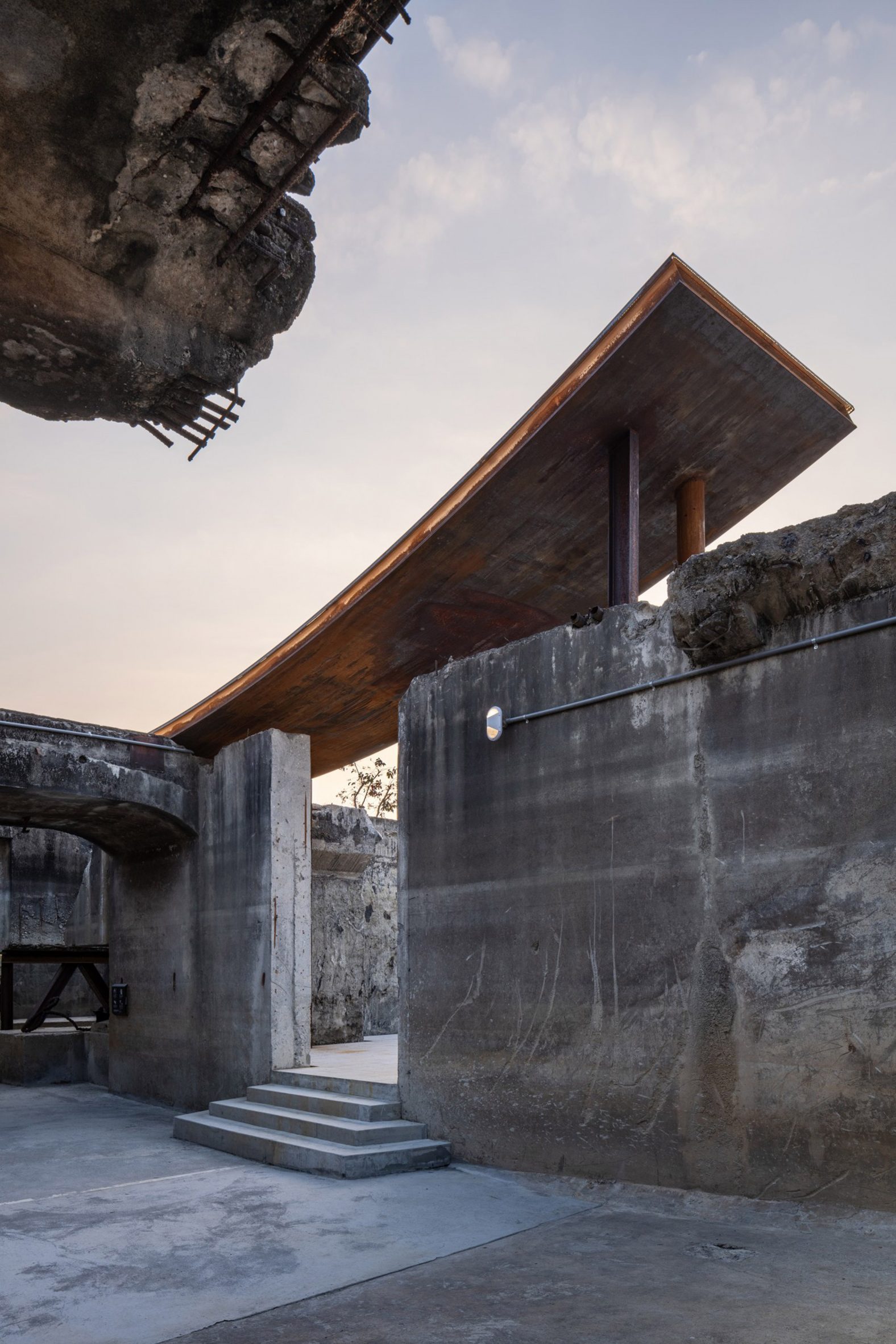
The retention of the existing structures is a rare example of adaptive reuse in Taiwan, where old buildings are frequently demolished to make way for new development.
The architects chose to preserve and integrate the ruins to provide a link to the history of Pingtung, which was known as Heito during the period of Japanese rule in the early 20th century.
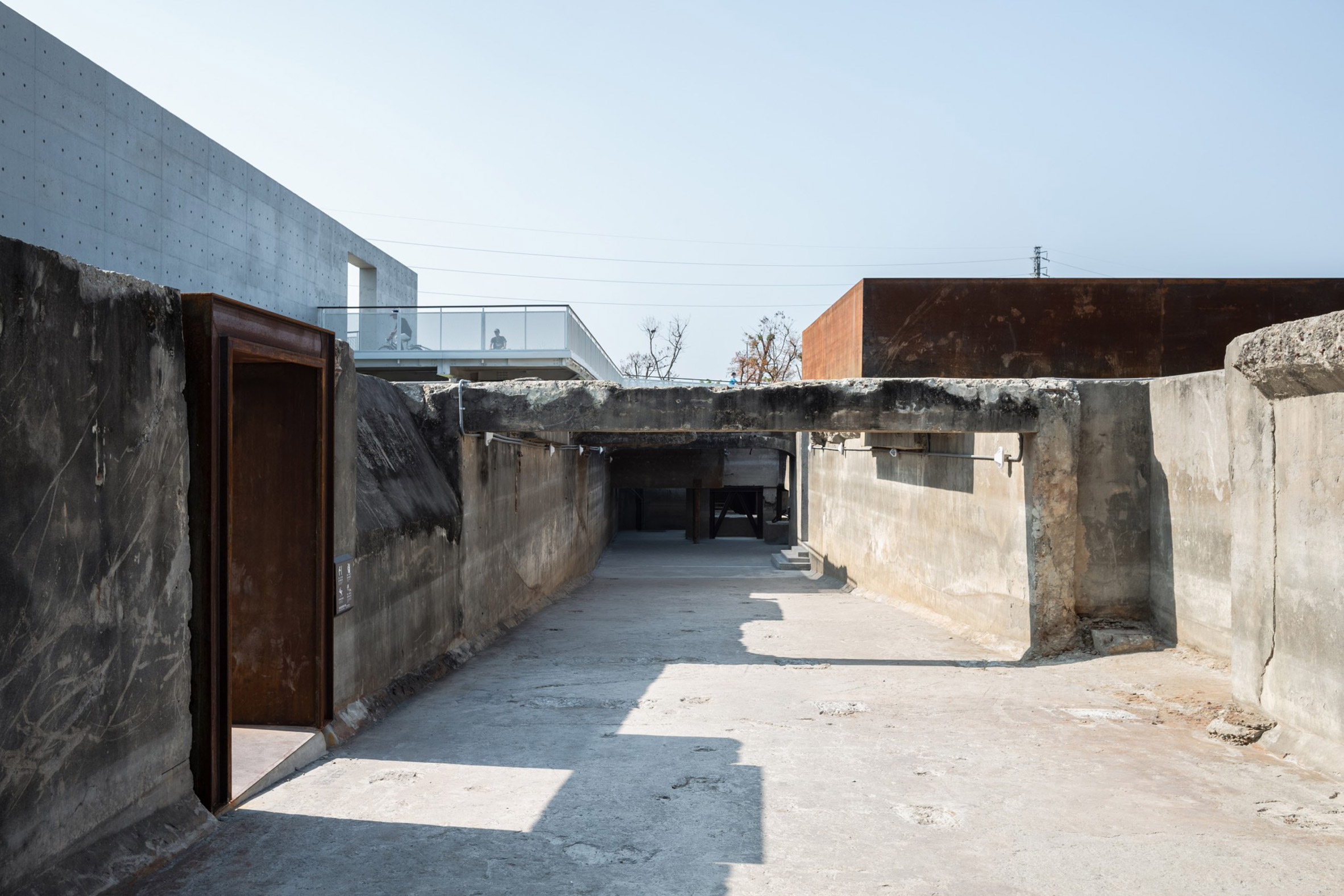
The landscaping project incorporates several underground structures that were uncovered as the overgrown site was gradually cleared to create space for the park.
"The design endeavoured to recover and identify each remaining structure," the studio explained. "Each building served a specific function in the park, providing a vital look into Heito's history of development. It tells the story of building the infrastructure and the impact on the city."
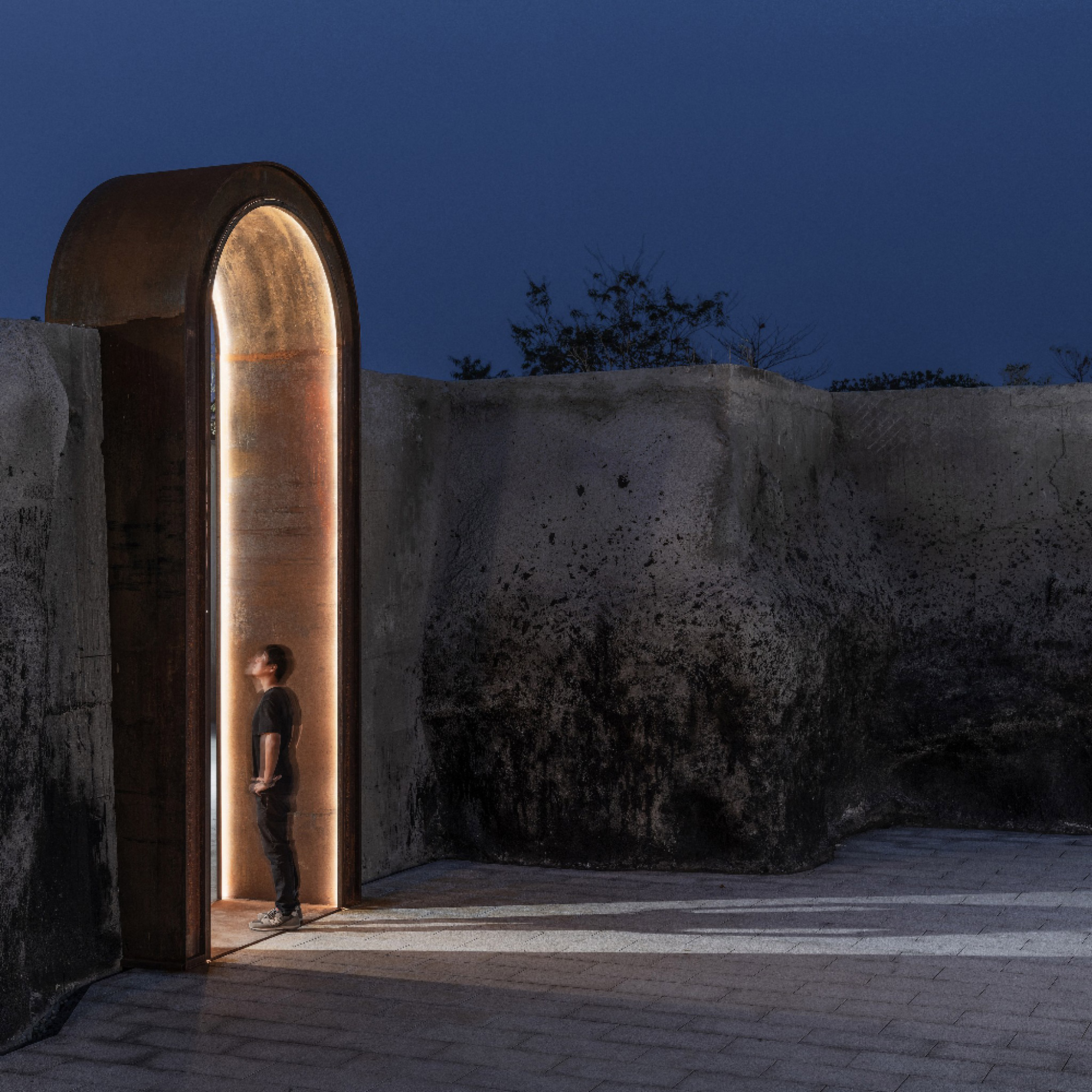
One of the preserved structures is a subterranean passage belonging to the old factory. The area around the existing concrete walls was excavated to create a courtyard reached by several sets of steps set into the new landscape.
The original structure is visible from above and from the courtyard level, where new interventions made from weathering steel, including a circular tunnel and an arched gateway, provide connecting points between the old and new spaces.
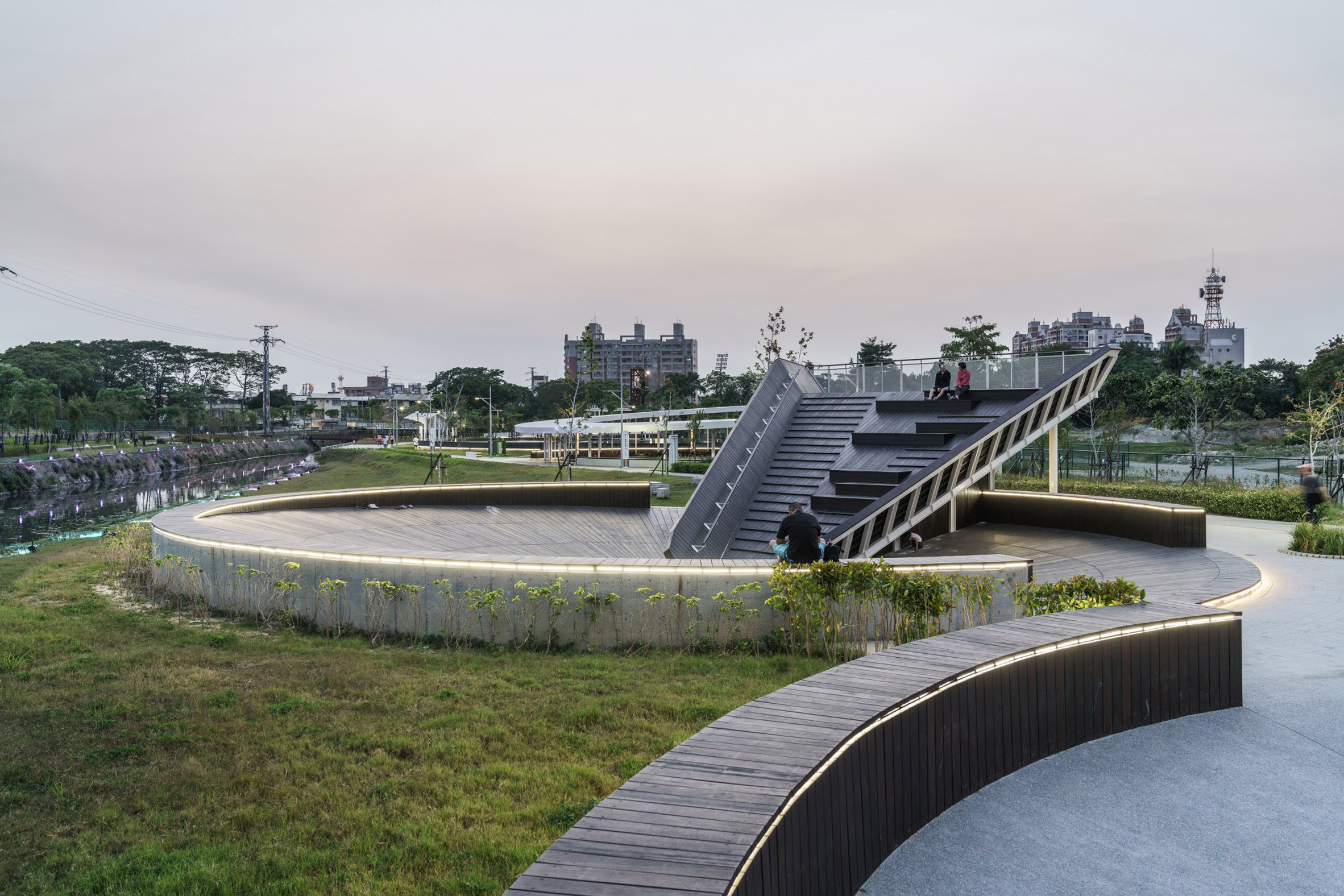
A scale model depicting the sugar factory as it once was is placed in the courtyard. The sculpture is made from the same oxidised metal and includes the chimneys that were a familiar site to Pingtung's older residents.
The park also retains several of the basins that once stored the factory's wastewater. The circular concrete foundations of these basins are repurposed to create a series of pavilions with varied functions.
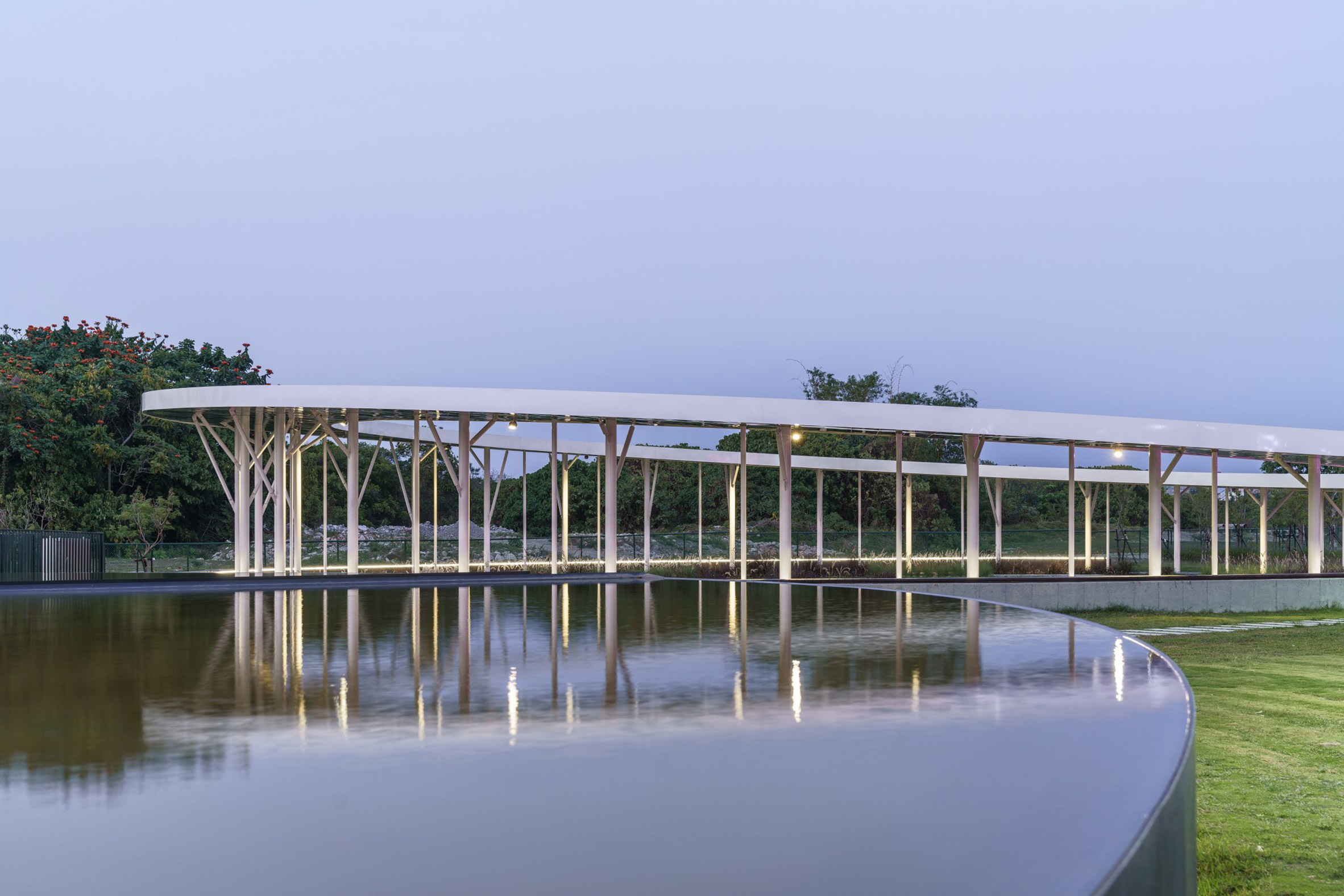
One of the steep-sided basins incorporates a playground with an additional viewing platform that children can climb to get a view over the surrounding park.
The extension to the playground basin also provides a shaded space underneath and features an exposed steel structure intended to evoke the machinery once used in the factory.
Another of the basins references a temporary bamboo pavilion built for the visit of Japanese emperor Hirohito in 1923. Thirty-two steel elements shaped like bamboo stalks support a ring-shaped roof that creates a shaded place to watch performances taking place on the central stage.
A reflecting pool created by adding a stainless steel deck to one of the basins provides a mirror image of the nearby Da-Wu mountains on a still day.
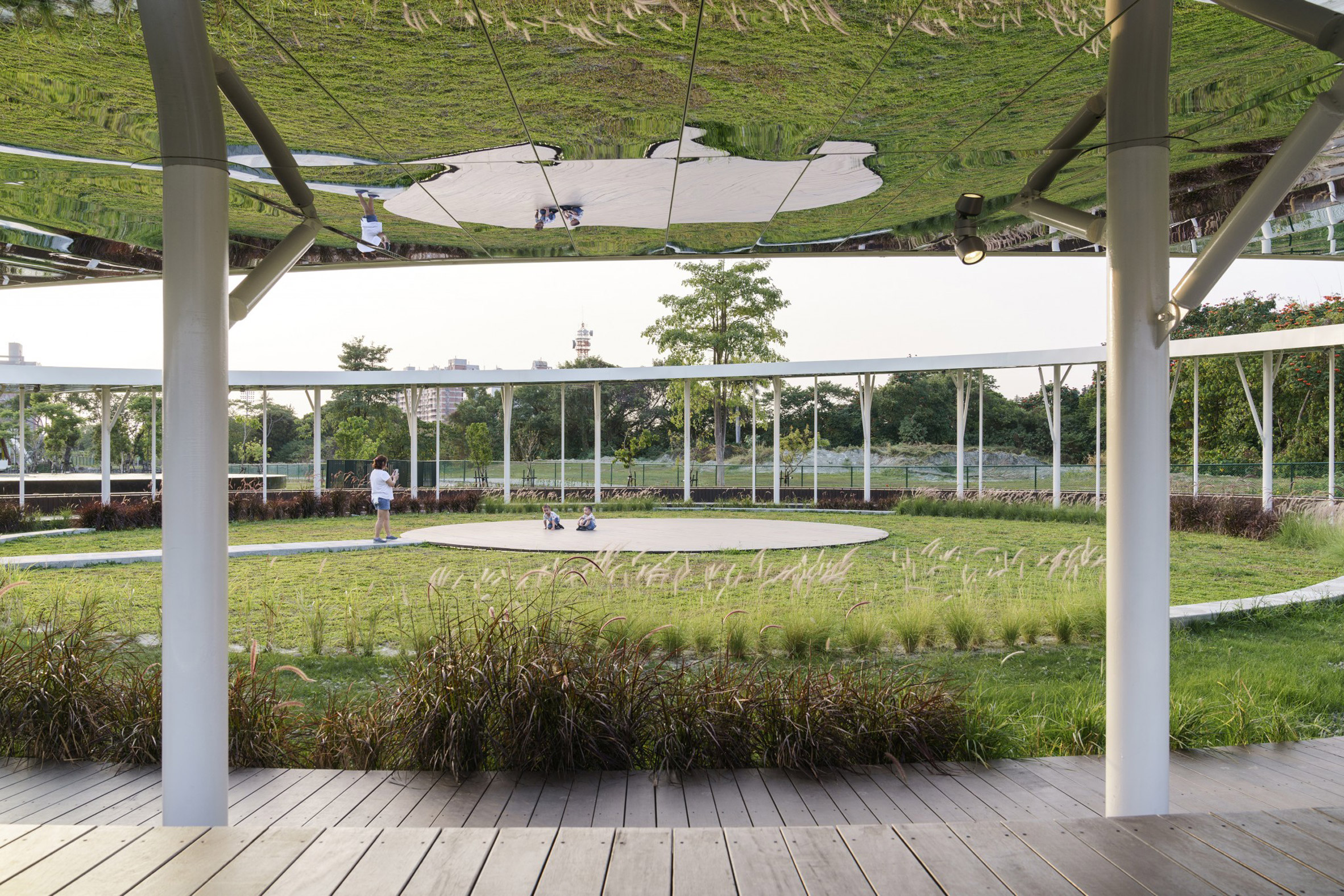
The water is just 15 centimetres deep and a path extends from the edge of the basin to the centre, creating the illusion of walking on water.
ECG International Landscape Consultants believe the careful integration of historical features into a contemporary public space demonstrates that there is scope for more adaptive reuse projects within Taiwan.
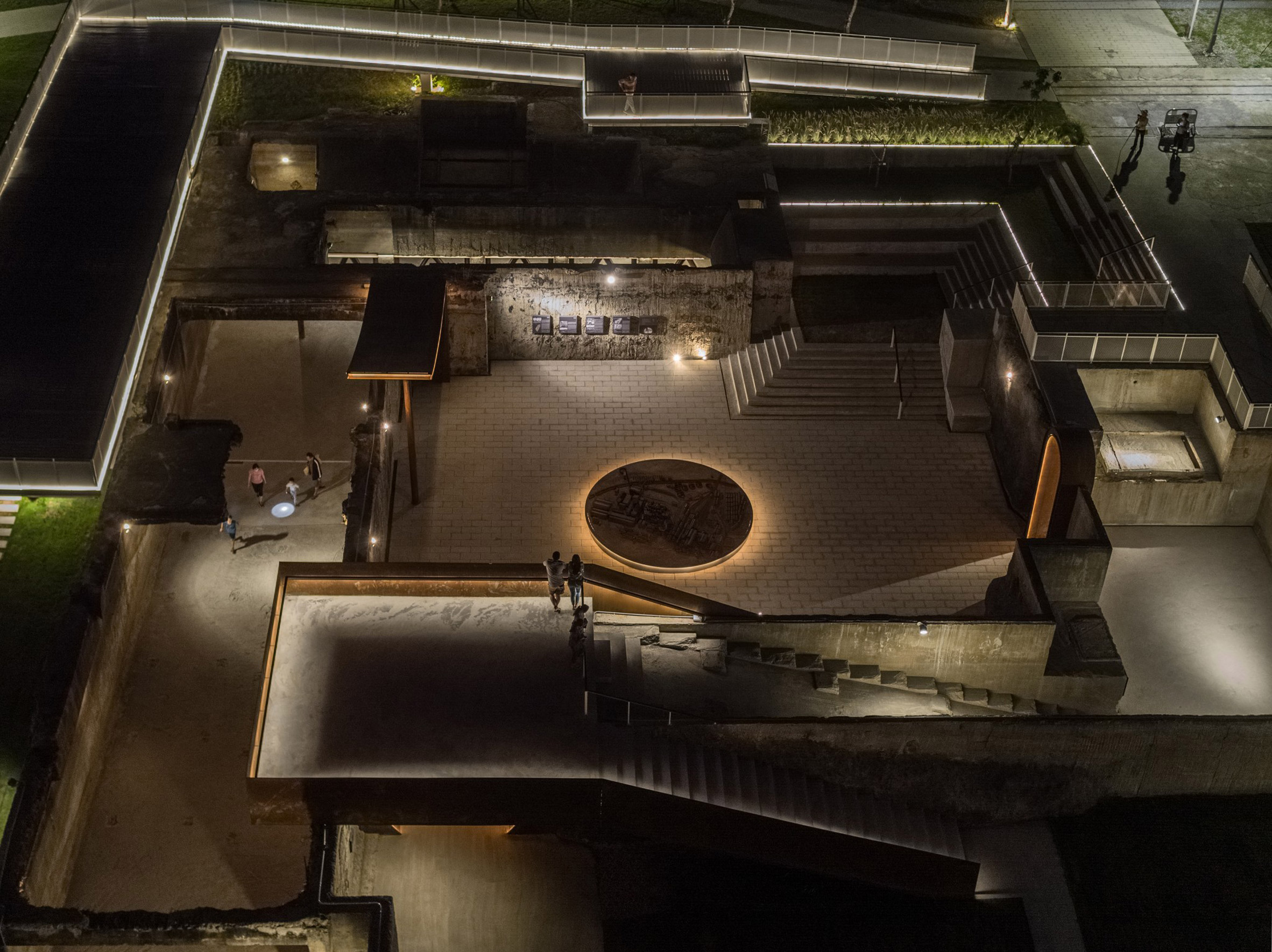
"With Heito, a tiny portion of the era was saved through the inspiration of its excavated historical structures," the studio said.
"Hopefully, this project inspires an approach to defining the design of a space. Hopefully, people can see a wasteland and discover its potential."
The post Heito 1909 is a landscaped park on the site of a former sugar factory appeared first on Dezeen.
No comments:
Post a Comment